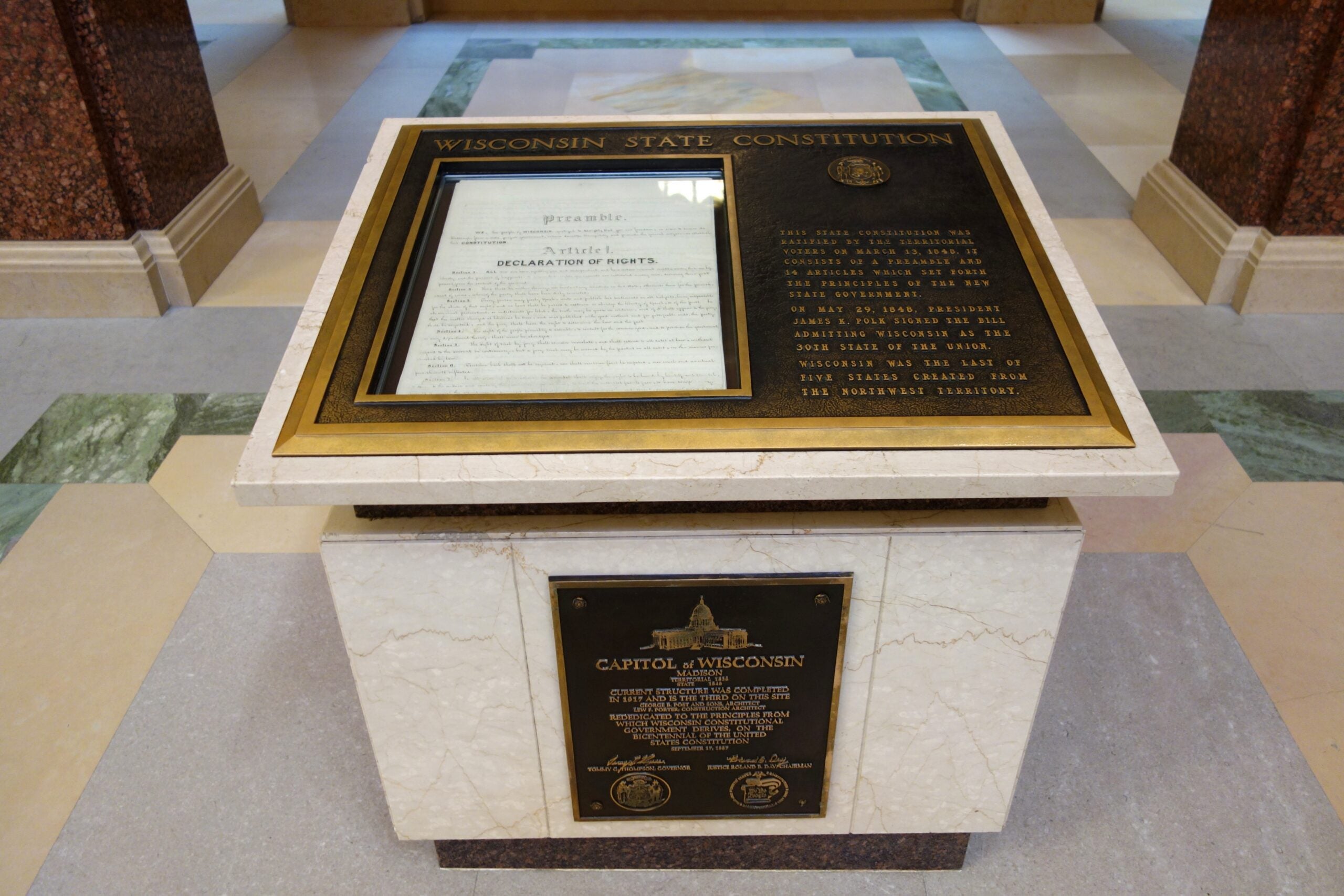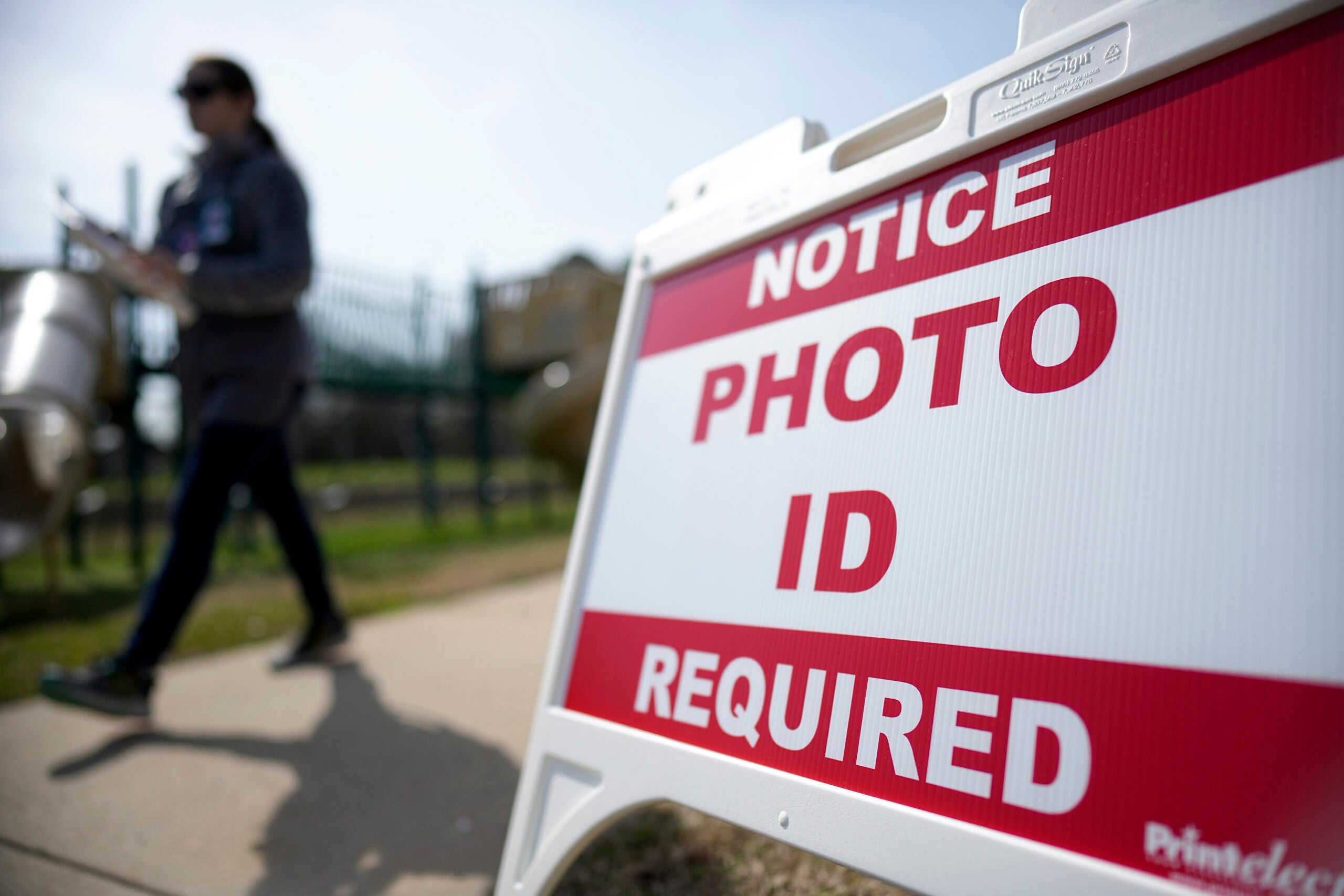When Wisconsin voters participate in the upcoming April election, whether it’s in-person or by mail, they’ll be asked to do something that doesn’t happen very often: weigh in on a proposed change to the state constitution.
The proposed constitutional amendment, which has to do with crime victims’ rights, is the result of a nationwide lobbying effort and has spurred strong opinions on either side of the issue.
The change, named Marsy’s Law after the sister of its financial backer, billionaire Henry Nicholas, would add more rights for crime victims in the state constitution.
News with a little more humanity
WPR’s “Wisconsin Today” newsletter keeps you connected to the state you love without feeling overwhelmed. No paywall. No agenda. No corporate filter.
Supporters say victims deserve to have constitutional protections, as those accused of committing crimes against them do.
Opponents argue increasing victims’ rights in this way could violate the constitutional rights of the accused. They say individuals accused of crimes need constitutional protection against abuse of power by the state, while victims’ protections against their perpetrators can be ensured in state laws.
During an appearance Monday on WPR’s “The Morning Show,” Veronica Figueroa Velez, executive director of UNIDOS, a domestic violence agency in Madison, said approving the amendment would “level the playing field” between victims and the accused.
“We just want victims and survivors of crime to be able to have a better stance in court, to be able to defend themselves,” she said. “Marsy’s Law is not intended to allow the victims to have greater or lower (rights), it’s about having equal rights for victims.”
Other supporters argue the changes would increase victims’ faith in the criminal justice system and empower more people, including victims of domestic violence, to come forward to report crimes.
In the same “The Morning Show” program, Asma Kadri Keeler, a staff attorney with the American Civil Liberties Union of Wisconsin (ACLU), argued Wisconsin’s existing laws and constitutional protections for victims are good and don’t need to be changed.
“Wisconsin’s current victims’ rights law offers each and every one of the protections that Marsy’s Law is proposing,” Kadri Keeler said.
Opponents also argue some of the language in the proposal both over-promises to victims and is too vague, causing more work within the state criminal justice system and potentially opening up the state to costly lawsuits as courts attempt to discern what exactly was intended when some rights were promised.
Some have also pointed out Marsy’s Law has been used in other states to inappropriately obscure the identity of police officers involved in shootings, as officers argue they were victims of harassment or violence in the incidents.
Lobbying efforts in support of the proposal have been robust, including more than $380,000 spent on lobbying lawmakers and nearly $200,000 in online advertisements in 2019, according to Wisconsin Ethics Commission reports.
Groups opposed to the change include the ACLU. Supporters include a number of law enforcement groups, like the Wisconsin Chiefs of Police Association.
The language that will appear on voters’ ballots will look like this:
“Additional rights of crime victims. Shall section 9m of article I of the constitution, which gives certain rights to crime victims, be amended to give crime victims additional rights, to require that the rights of crime victims be protected with equal force to the protections afforded the accused while leaving the federal constitutional rights of the accused intact, and to allow crime victims to enforce their rights in court?”
Amendment Would Define ‘Victim,’ Add Specific Rights To Constitution
The language on the ballot was approved by lawmakers as an appropriate summary of the changes, but the changes themselves are much more detailed. According to an analysis by the Legislature’s nonpartisan research office, the amendment calls for the addition of 17 specific rights for crime victims in the constitution.
Those rights are:
- To be treated with dignity, respect, courtesy, sensitivity, and fairness.
- To privacy.
- To proceedings free from unreasonable delay.
- To timely disposition of the case, free from unreasonable delay.
- Upon request, to attend all proceedings involving the case.
- To reasonable protection from the accused throughout the criminal and juvenile justice processes.
- Upon request, to reasonable and timely notification of proceedings.
- Upon request, to confer with the attorney for the government.
- Upon request, to be heard in any proceeding during which a right of the victim is implicated, including release, plea, sentencing, disposition, parole, revocation, expungement, or pardon.
- To have information pertaining to the economic, physical, and psychological effect upon the victim of the offense submitted to the authority with jurisdiction over the case and to have that information considered by that authority.
- Upon request, to timely notice of any release or escape of the accused or death of the accused if the accused is in custody or on supervision at the time of death.
- To refuse an interview, deposition, or other discovery request made by the accused or any person acting on behalf of the accused.
- To full restitution from any person who has been ordered to pay restitution to the victim and to be provided with assistance collecting restitution.
- To compensation as proved by law.
- Upon request, to reasonable and timely information about the status of the investigation and the outcome of the case.
- To timely notice about all rights granted under this constitutional amendment and all other rights, privileges, or protections of the victim proved by law, including how such rights, privileges, or protections are enforced.
According to the analysis, the amendment also defines who a victim is. Under the proposal, a victim would be:
- A person against whom an act is committed that would constitute a crime if committed by a competent adult.
- If the person is deceased or physically or emotionally unable to exercise his or her rights, the person’s spouse, parent or legal guardian, sibling, child, person who resided with the deceased at the time of death, or other lawful representative.
- If the person is a minor, the person’s parent, legal guardian or custodian, or other lawful representative.
- If the person is adjudicated incompetent, the person’s legal guardian or other lawful representative. A victim does not include the accused or a person who the court finds would not act in the best interests of a victim who is deceased, incompetent, a minor, or physically or emotionally unable to exercise his or her rights.
The amendment also authorizes the victim “to enforce his or her rights in any circuit court or before any other authority of competent jurisdiction, and direct the courts to act promptly with respect to such an action and to afford a remedy for the violation of any right of the victim.”
Bipartisan Support, Bipartisan Opposition In Legislature
In order to show up on the ballot, a proposed amendment to the state constitution has to be approved by two consecutive sessions of the state Legislature. In 2017, it passed the Assembly on a vote of 81-10 and the Senate on a vote of 29-4. In 2019, it passed the Assembly 82-15 and the Senate 27-5.
Opposition to the proposal came mostly from Democrats.
In 2017, one Assembly Republican, Rep. Rob Stafsholt, of New Richmond, joined Democrats in voting against the proposal. No Republicans voted against the plan in the Senate.
In 2019, Republican Reps. Treig Pronschinske, of Mondovi, and Jeremy Thiesfeldt, of Fond du Lac, joined Stafsholt and Democrats in voting against. In the Senate, Sen. Duey Stroebel, R-Saukville, voted against.
This isn’t the first effort of its kind in the state Legislature. Lawmakers approved constitutional changes related to victims’ rights in the 1990s, as many other states did at the time. The state also updated some laws related to victims’ rights about a decade ago.
Something going on the ballot as a statewide referendum doesn’t guarantee its passage. In 2018, voters rejected a proposed amendment that would have eliminated the state treasurer’s office.
Wisconsin Public Radio, © Copyright 2025, Board of Regents of the University of Wisconsin System and Wisconsin Educational Communications Board.







